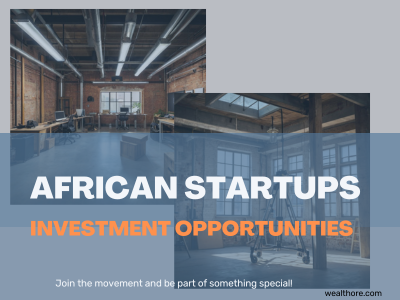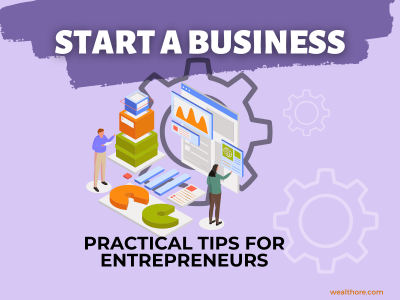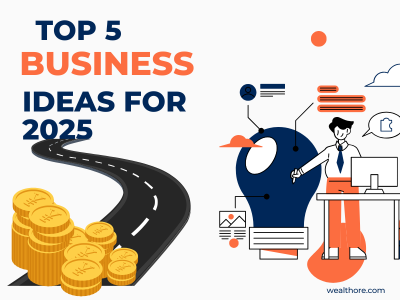Investing in African startups presents a world of exciting possibilities, with the continent rapidly becoming a hotbed for innovation in sectors like fintech, agritech, and more. However, diving into these opportunities without proper preparation can be risky. This is where due diligence for African startups becomes crucial. With unique challenges such as regulatory uncertainties and infrastructure limitations, thorough research and analysis are essential to safeguard your investment. In this guide, we’ll explore how to navigate the African startup landscape with a strategic due diligence process that not only mitigates risks but also unlocks incredible growth potential. (And hey, remember, skipping due diligence is like going to a safari without binoculars – you’ll miss the details that matter most!)
The African Startup Scene: A Land of Opportunity
The African startup ecosystem is booming. From fintech innovations shaking up traditional banking to agritech solutions transforming farming practices, startups across the continent are tackling real-world problems with creative, scalable solutions. Investors are taking notice, eager to get in on the ground floor of this exciting, emerging market. However, investing in African startups isn’t a “get rich quick” scheme; it’s a nuanced, complex venture that requires careful consideration of local dynamics.
Africa’s growth potential is enormous, but it’s a market filled with unique challenges—regulatory hurdles, infrastructure gaps, and market fragmentation, to name a few. This doesn’t mean the continent isn’t worth the investment; it just means that due diligence is more important than ever. And don’t worry, navigating these waters doesn’t have to be overwhelming—just think of it as putting on a pair of financial floaties.
Why Due Diligence is Critical for African Startups
Investing in any startup is inherently risky, but in Africa, the stakes can be even higher. A well-executed due diligence process is like having a GPS for the journey ahead—it won’t eliminate all the bumps in the road, but it can help steer you away from most of them. Here’s why it’s so critical when venturing into the African startup ecosystem:
- Mitigating Risk: No one likes surprises, especially when your money is on the line. Due diligence helps uncover red flags like regulatory compliance issues, financial instability, or operational inefficiencies before they turn into major problems.
- Validating the Business Model: Is the startup’s business model viable within the African context? Will it scale? Due diligence helps you assess whether the startup has a realistic growth strategy or if it’s just wishful thinking.
- Understanding Market Dynamics: Africa is not a monolith. Market conditions in Nigeria are different from those in Kenya, South Africa, or Ghana. Due diligence helps you understand the local landscape, competitive pressures, and potential growth opportunities.
- Evaluating the Management Team: You’re not just investing in an idea—you’re investing in people. A strong management team with experience and integrity can make or break a startup. Is the founding team experienced enough to navigate the challenges ahead?
- Negotiating Favorable Terms: Armed with insights from your due diligence, you can negotiate investment terms that reflect the risks and rewards. Think of it like haggling at the market—you’ll walk away with a better deal if you know what you’re buying.
Key Areas of Focus for Due Diligence
Conducting due diligence isn’t just a matter of glancing over financial statements. It’s a comprehensive process that covers multiple areas of the startup’s operations. Here are the key areas to focus on:
- Legal and Regulatory Compliance: Africa’s regulatory landscape can be tricky. You’ll need to verify that the startup is operating legally within its country of operation. Check licenses, permits, contracts, intellectual property rights, and data privacy policies to ensure there are no legal skeletons lurking in the closet.
- Financial Due Diligence: Money talks, but it can also be a smooth liar. Dig into the startup’s financial statements, including revenue streams, expenses, cash flow, and debt obligations. Can the company sustain itself, or is it burning through cash at an unsustainable rate?
- Operational Due Diligence: This is where you assess the startup’s operational efficiency. Does it have the infrastructure in place to scale, or are there glaring bottlenecks? Review its supply chain, logistics, technology infrastructure, and customer service capabilities.
- Market Due Diligence: Understanding the target market is critical. You need to evaluate the market size, demographics, and competition. Does the startup have a clear market positioning and a competitive advantage, or are they just another player in a crowded field?
- Technical Due Diligence (for tech startups): If the startup is tech-focused, you’ll want to assess the robustness of their technology. Is it scalable and secure? Does the company have intellectual property protection in place, and is the development team capable of handling future growth?
- Team Due Diligence: As mentioned before, the team can make or break the startup. Investigate the founders’ backgrounds—what’s their track record? Do they have the leadership skills, industry knowledge, and dedication to bring their vision to life?
- Environmental, Social, and Governance (ESG) Due Diligence: Investors are increasingly looking at ESG factors. How is the startup impacting the environment? Is it socially responsible? Does it have a solid governance structure in place?
Navigating the Challenges of Due Diligence for Africa Startups
Conducting due diligence in Africa can sometimes feel like trying to solve a puzzle with missing pieces. Here are a few challenges you might face:
- Information Asymmetry: Reliable data can be hard to come by in some African markets, making it tough to get a clear picture of the startup’s operations.
- Informal Business Practices: In some regions, business operations are less formal, which can complicate the process of verifying information or assessing risks.
- Infrastructure Limitations: Limited access to reliable internet, transportation, and communication infrastructure can make due diligence more challenging.
- Cultural Nuances: Africa is a continent rich in diversity, and understanding the local culture and business etiquette is essential for effective communication and building trust.
Overcoming the Challenges
But don’t worry—these challenges aren’t insurmountable. With the right approach, you can mitigate them effectively:
- Partner with Local Experts: Work with local consultants, lawyers, and accountants who have in-depth market knowledge. They can offer insights that you wouldn’t be able to gather on your own.
- Leverage Technology: Use online databases, data analytics tools, and virtual communication platforms to bridge the information gap.
- Conduct On-the-Ground Research: If possible, visit the startup’s operations in person. This can give you a better understanding of the business’s strengths and weaknesses.
- Build Relationships: Develop strong relationships with local stakeholders, including government officials, industry associations, and potential customers. These relationships can provide valuable information and support.
Conclusion
In conclusion, investing in Africa’s burgeoning startup scene offers immense potential, but success hinges on a thorough and well-executed due diligence for African startups. By carefully evaluating factors like legal compliance, financial health, market dynamics, and the management team’s capabilities, investors can mitigate risks and position themselves for high returns. Overcoming the challenges unique to Africa, such as information asymmetry and infrastructure limitations, requires leveraging local expertise and conducting in-depth research. With the right due diligence, investors can unlock the full potential of Africa’s innovative and dynamic startup ecosystem, contributing to its continued growth and success.
If you’re ready to explore promising African startups and make informed investment decisions, visit Wealthore.com for expert insights and curated opportunities!






